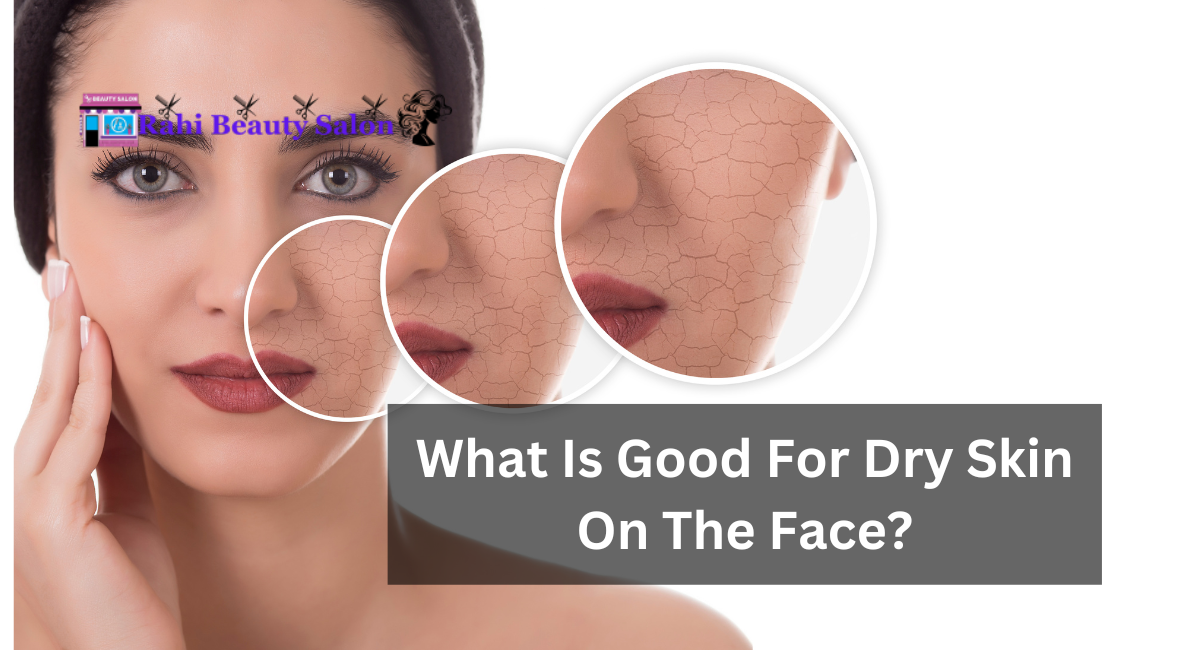Facial dryness can cause irritation and distress, particularly when it manifests as rigidity, flaking, and an unattractive complexion. Fortunately, effective methods exist for revitalizing and nourishing the skin, thereby reinstating its inherent radiance and pliability.
This article will examine a variety of effective remedies and hygiene practices for addressing the issue of dry skin on the face. By studying natural ingredients, adjusting one’s lifestyle, selecting appropriate moisturizers, and establishing a hygiene regimen, we shall furnish you with an all-encompassing manual on attaining hydrated and healthy facial skin.
What Is Good For Dry Skin On The Face?
Dry facial skin can cause discomfort and complications like redness, flaking, and fine wrinkles. To mitigate dry skin and reinstate a radiant, hydrated complexion, contemplate implementing the subsequent efficacious remedies and practices:
1. Routine For Hydrating Skincare
Cleansing with a gentle, hydrating cleanser will prevent the removal of the skin’s natural lipids. Warm water is preferable to boiling water for washing the face, as it can dry.
Select a hydrating, rich moisturizer that contains hyaluronic acid, glycerin, or ceramides, among other constituents—daily application to the face and neck, focusing on the area following cleansing.
Consider utilizing hydrating serums that contain niacinamide or aloe vera to support the skin’s natural barrier and lock in hydration.
2. Protection From The Sun
Use sunscreen with a minimum SPF of 30 to shield your skin from UV damage. Sun exposure can hasten the aging process and exacerbate parched skin.
3. The Process Of Exfoliation
Apply a mild exfoliant to your skin 1-2 times per week to eliminate dead skin cells and improve the absorption of your moisturizer.
4. Humidifier
For added moisture, use a humidifier in your residence, particularly during the winter months. This can aid in the prevention of chapped, body and face skin.
5. Organic Treatments
Components like oatmeal, honey, and aloe vera possess soothing and moisturizing attributes. Using these components, you can make homemade face masks or treatments to hydrate your skin.
6. Prevent Harsh Substances
Alcohol, fragrances, and harsh compounds should be avoided when using skincare products, as they can exacerbate dryness and irritation.
7. Diet And Hydration
Water should be consumed in copious quantities to hydrate the epidermis from the inside out. In addition, to nourish your complexion, include in your diet avocados and nuts, which are abundant in healthy fats.
8. Lifestyle Modifications
In severe weather conditions, limit exposure to extreme temperatures and wear protective apparel. Additionally, excessive alcohol and smoking can contribute to dry skin; therefore, you should consider ceasing or reducing these behaviors.
9. Seek The Advice Of A Dermatologist
Consult a dermatologist for expert advice and potential treatment alternatives if your dry skin is severe, persistent, or accompanied by additional symptoms.
What Causes Skin Dryness On The Facial Areas?
Various internal and external factors may cause dry skin on the face. Comprehending the fundamental elements is critical to resolve the matter efficiently. The following are frequent causes of thin skin on the face:
1. Environmental Aspects
The epidermis can lose moisture in dry, cold climates characterized by low humidity.
Prolonged exposure to intense sunlight, frigid winds, or severe winds can deplete the skin’s natural lipids, resulting in desquamation.
Using central heating and air conditioning systems indoors can reduce relative humidity, exacerbating the condition of dehydrated skin.
2. Skincare Practices
Excessive scouring or the use of harsh, drying cleansers can cause a disturbance in the moisture equilibrium of the skin.
Utilizing hot water to cleanse one’s face may result in removing the skin’s natural lipids, thereby inducing dryness.
Dry, sensitive skin may result from removing the skin’s protective barrier caused by excessive exfoliation.
3. Age
Due to the deterioration of the skin’s capacity to produce natural oils and retain hydration, dry skin becomes more prevalent in older people.
4. The Study Of Genetics
There may be a genetic predisposition to dehydrated skin in some individuals. Eczema and other skin disorders run in families, elevating susceptibility to developing dry skin.
5. Skin Disorders
Seborrheic dermatitis, eczema, or psoriasis are skin conditions that can cause persistent dryness and flaking of the face.
6. Hot baths And Showers
Dryness can result from extended exposure to hot water in showers or bathing, which strips the skin of natural oils.
7. Unsuitable Skincare Products:
Applying fragrances, alcohol, or abrasive chemical-containing products can cause skin irritation and dryness.
8. Hydration Deprivation
Insufficient water consumption can result in dehydration of the entire body, including the epidermis. Hydration is a vital component of a healthy epidermis.
9. Pharmaceutical Agents
As a side effect, specific medications, including acne treatments and diuretics, may contribute to dehydrated skin.
10. Hormonal Variations
Pregnancy and menopause are instances in which hormonal fluctuations can influence the oil production and moisture levels of the epidermis.
Achieving hydrated, supple skin on the face is essential for maintaining a youthful and healthy appearance and ensuring comfort. By adhering to a healthy lifestyle and using the appropriate products and practices, it is possible to combat dehydrated skin and achieve a radiant complexion. By integrating these suggestions into your daily regimen, you can effectively mitigate facial dehydration and attain the desired bright appearance.
Thanks for reading.
